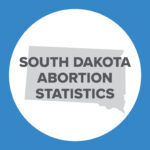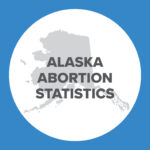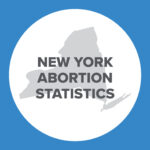Hidden Epidemic: Nearly 70% of Abortions Are Coerced, Unwanted or Inconsistent With Women’s Preferences

Researchers: Abortion Coercion Is Real & Deserves a Nat’l Conversation
Washington, D.C. – Amid a landmark legal case highlighting the dangers of mail-order abortion pills, a new peer-reviewed study shows that millions of U.S. women have experienced unwanted abortions.
Nearly 70% of women with a history of abortion describe their abortions as inconsistent with their own values and preferences, with one in four describing their abortions as unwanted or coerced, according to the study published in the medical journal Cureus.
The second of Charlotte Lozier Institute’s Unwanted Abortion Studies confirms prior research that found over 60% of women who had abortions report high levels of pressure to abort from one or more sources. Those same women report higher levels of subsequent mental health and quality-of-life issues.
“This study confirms earlier findings that the hidden epidemic of unwanted abortions is real, and far larger than most people imagine,” said lead author David Reardon, Ph.D., a Lozier Institute associate scholar and director of the Elliot Institute.
Researchers interviewed a national sample of 1,000 women ages 41-45. Approximately one in four women reported a history of abortion (similar to the national average), and 91% completed the survey – almost three times the participation rate of the famous “Turnaway Study” conducted by an abortion advocacy group, which purported to find almost universal satisfaction with the decision to abort, despite also finding high levels of regret, sadness, guilt and anger.
Noting that “negative and positive reactions frequently co-exist,” Reardon’s team set out to conduct a more nuanced assessment of women’s feelings and mental health outcomes. Key findings include:
- 67% of women described their abortions as “accepted but inconsistent with their values and preferences” (43%) or “unwanted or coerced” (24%).
- Only 33% identified their abortions as wanted.
- 60% would have preferred to give birth if they had received either more emotional support or had more financial security.
“We need to discard the dangerous assumption that ‘freedom of choice’ reflects the reality behind most women’s experiences with abortion,” said Reardon. “Only the minority of abortions are freely chosen absent outside pressures.”
Tessa Longbons, Lozier’s senior research associate and a co-author of the study, added:
“We tend to think of abortion coercion in countries with oppressive regimes like China. In fact, this shocking hidden epidemic is happening all around us. Mail-order abortion pills remove the doctor from the room and make it easier than ever to force abortions on women and girls who do not want them – their distress compounded by the sight of their baby’s clearly human body. Countless women suffer in silence under the guise of ‘choice,’ when they never felt like they truly had one.
“No woman should have to endure an unwanted abortion. This ought to be a point of common ground in the abortion debate. Instead it is a rarely discussed third rail, even as pro-abortion politicians work to shut down the life-affirming safety net. It’s time for a national conversation about abortion coercion that respects the range of women’s lived experiences, while acknowledging that the overwhelming majority of abortions are in some degree of conflict with what women actually want. Their stories deserve to be told and not erased from the conversation.”
The full study, accessible via the peer-reviewed library at LozierInstitute.org, is the second in a series of planned studies designed to investigate the prevalence and impact of abortions that conflict with women’s own maternal preferences and moral beliefs.
Charlotte Lozier Institute was launched in 2011 as the education and research arm of Susan B. Anthony Pro-Life America. CLI is a hub for research and public policy analysis on some of the most pressing issues facing the United States and nations around the world. The Institute is named for a feminist physician known for her commitment to the sanctity of human life and equal career and educational opportunities for women.



























